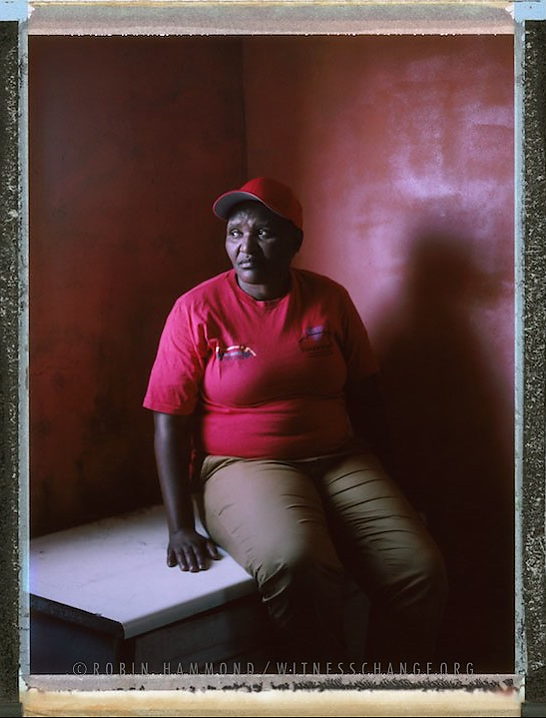Funeka / South Africa
“It was on December 1st on world AIDS Day. I arrived in Lingelethu West Police Station to report a crime committed against me. I was told to wait for a transport and to be taken to hospital. The Van arrived and two policemen came into the Charge Office.
‘Will you drop this rape victim at the hospital?’ the policeman in the Charge office asked the other two police men.
I was taken in the back of the van and dropped at Sito B Hospital inside the hospital; there were a few people and nurses going up and down. I met the Senior nurse and told her what happened. The nurse shouted at me “This is not the police Station, why don’t you go there?” I explained to her that I had been to Lingelethu Police Station and I was dropped at the hospital by the police. She left me standing there. It was midnight. There was no transport, and the Police Station was 10 minutes away from the hospital. I walked to Sito B Police Station.
The police station was full. Most people were standing while others were sitting on chairs. There was this bad smell, blood and other people being drunk. There were few police to serve the people. Most of them were chatting to each other. I was standing, waiting to make a statement. At last I made my statement. I told the policeman what happened. He asked me: ‘Are you a woman?’ I told him: ‘Yes I am.’ He didn’t take my statement.
Instead he went to other police and I heard him laughing. The other police also came to ask me what had happened. I later found out they were making fun of me.
I went home, wearing one shoe, and feeling very devastated. I never believed that the institutions I trusted could do this to me. I arrived at home and went straight to bed without a statement being taken.
My heart was so sore”





I’m so sorry that this happened to you. I wish I could give you a hug, no one deserves that kind of treatment.
I am so repulsedby what happened to you! I am sending you love, courage and strength. I wish i could do more to honor you. And heal your heart.